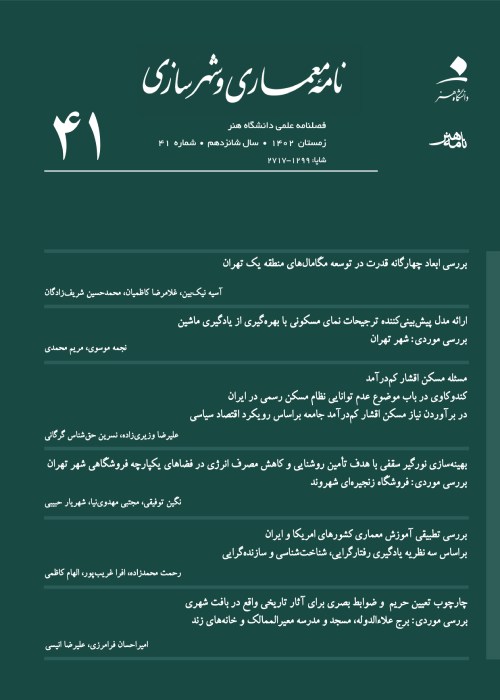Application of Relative Value Models in the Urban Projects’ Selection and Prioritization through Portfolio Management Approach Case Study: Tehran Municipality's Department of Planning and Architecture
Author(s):
Article Type:
Research/Original Article (دارای رتبه معتبر)
Abstract:
Nowadays, most of the major municipalities are faced with many new projects up and running, sometimes their essential resources to start or finish them is several times more than the annual calculated budget. Most of the project-driven organizations use project portfolio management approach to deal with these types of problems and better productivity of their projects. The main constituent components include a process framework, decision criteria, methods and models of choosing the portfolio. The main objectives of this study is Identifying the most important aspects and criteria of projects selection and prioritization in the Department of Urban Development and Architecture, optimal portfolio selection and offering a mix of relative value models for the study's project portfolio selection. This study is an applied research in terms of objective and a descriptive - review one in terms of data collection. The instruments of data collection are reviews of documentation, interviews and questionnaires. According to the paper findings, the project portfolio management consists of a four-step process, portfolio selection, approval, implementation, monitoring and control. The project portfolio is defined and chosen as the first step through a five-step process, classification of projects, comprehensive evaluation of project, project selection, prioritization of projects and balancing the portfolios (in the case of more than one portfolio). The second step is making decisions of the approval and allocation of resources. Implementing the approved portfolio usually done at the third step and finally, the fourth step is consisted of a continuous and regular reporting and monitoring of all the undertaken works during the process of the running project portfolio. Classification methods and models of portfolio can be pointed out as other findings of this research. The project portfolio selection procedures can be classified into four groups, relative value models, economic value models, optimization models and artificial intelligence models. Unlike the economic value models, the relative value models assesse the projects based on a comparison against fixed scale or other projects and take advantages of qualitative and quantitative criteria for the projects selection simultaneously. The proposed model for Urban Development and Architecture Department of Tehran Municipality's project portfolio were offered as a combination of Delphi, Analytic Network Process and TOPSIS techniques. In the first phase of the proposed model, Delphi method was used to determine the dimensions and criteria of the projects selection and prioritization. In order to select and prioritize case study projects, decision criteria were separately recognized and classified through technical, financial, social, environmental and economic cases for the selection of new projects, and technical, financial, social, environmental, risks and economic cases for the prioritizing new running projects with low percent of physical progress. In the second stage, weights of the dimensions and criteria were determined through network analysis process, so that, social, environmental and financial criteria obtained more points than the other groups by reviewing its results in both the selection and prioritization. In the third stage, final grading of the projects was done by TOPSIS technique, and the projects portfolio orders and points were determined. The results of the first step can be used in the resource allocation in the second step process of portfolio management.
Keywords:
Language:
Persian
Published:
Journal of Architecture and Urban Planning, Volume:11 Issue: 21, 2019
Pages:
101 to 122
magiran.com/p1943349
دانلود و مطالعه متن این مقاله با یکی از روشهای زیر امکان پذیر است:
اشتراک شخصی
با عضویت و پرداخت آنلاین حق اشتراک یکساله به مبلغ 1,390,000ريال میتوانید 70 عنوان مطلب دانلود کنید!
اشتراک سازمانی
به کتابخانه دانشگاه یا محل کار خود پیشنهاد کنید تا اشتراک سازمانی این پایگاه را برای دسترسی نامحدود همه کاربران به متن مطالب تهیه نمایند!
توجه!
- حق عضویت دریافتی صرف حمایت از نشریات عضو و نگهداری، تکمیل و توسعه مگیران میشود.
- پرداخت حق اشتراک و دانلود مقالات اجازه بازنشر آن در سایر رسانههای چاپی و دیجیتال را به کاربر نمیدهد.
In order to view content subscription is required
Personal subscription
Subscribe magiran.com for 70 € euros via PayPal and download 70 articles during a year.
Organization subscription
Please contact us to subscribe your university or library for unlimited access!


